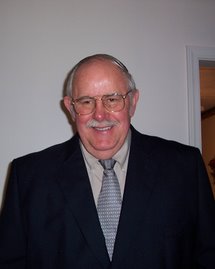
“I charge you by the Lord that this epistle be read unto all the holy brethren”(1 Thessalonians 5:27)
What did Paul mean by this statement? Did he believe that what he wrote under the inspiration of the Holy Spirit should be read aloud in the Church? Evidently so, for it is reported that it was done much more frequently in the early church. It wasn’t just sing a hymn; pray; sing another hymn; pass the offering plate; then preach a message on social issues or world events or whatever. The word of God had the pre-eminence.
These words from Thomas Scott, 1747-1821, say it very nicely:
The original is "I adjure you"---The solemn charge implies likewise a most decided claim to divine inspiration: for it evidently places this, and consequently the Apostles other epistles, on the footing of the ancient scriptures: The oracles of God. (Note: Colossians 4:15, 16). It likewise shews that both that oaths and adjurations are in some cases lawful; and that the subject, concerning which the apostle wrote, was considered by him, as peculiarly important.
This is worthy of the most serious consideration of all those, even among protestants, who do not make the reading of the scriptures a part of the service, when they meet in the worship of God; and of those who read them in so careless and indistinct a manner, that the congregation cannot hear or understand them. The advantage to illiterate people, to the multitude who cannot read, or who can read but imperfectly, of an audible, distinct, and emphatical reading of the scriptures in public, can scarcely be calculated. It will soon render even the best preaching more fully understood; and it will in some degree supply the deficiency , in other cases.
(From Scott’s Commentary on the Whole Bible; now sadly out of print). In his lifetime Scott wrote enough material so that it was published by his son in 12 volumes, not counting the six volume commentary. The only thing in print by him now is the excellent The Force of Truth In this book he speaks about his friendship with John Newton in nearby Olney, England.. This friendship led to Scott’s conversion written in 1779. The modern printing of The Force of Truth is published by Banner of Truth. cw




